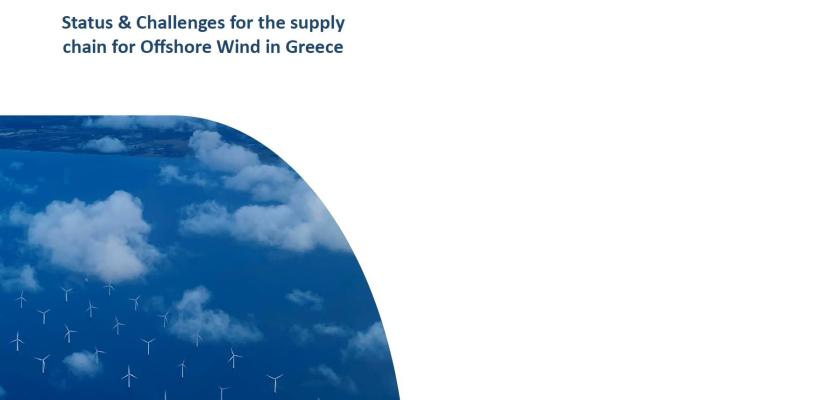
Status & Challenges for the supply chain for Offshore Wind in Greece

About this good practice
Development of the Greek offshore wind sector requires the development of a domestic offshore wind energy supply chain. It is considered that the only way to ensure the achievement of national targets is to achieve high levels of domestic production development. This way one could argue that domestic OWF supply chain could provide a higher priority in delivering the necessary components to local projects over foreign ones.
The development of the Greek OWF supply chain will require significant development of the local manufacturing facilities, the ports infrastructure, the lease or acquisition of specialized vessels and a skilled and trained workforce so that it will be able to carry out the task of production, transportation, installation, and maintenance of the major components required for an offshore wind energy project
Primary beneficiaries include Offshore wind projects developers, Greek Ports, Greek shipyard industry, Steel & Cables Industry, Cement Industry. Potential Beneficiaries include local communities, job seekers and new job opportunities, National Sustainable economic development, Energy independence and geopolitical empowerment in general
Resources needed
Investments in offshore wind projects could reach €7.7 billion by 2030 and grow to €60 billion by 2050. The domestic added value is expected to reach 55%, resulting in an annual contribution of €1.9 billion to GDP during the period 2024–2050 and the maintenance of an average of 44,000 jobs per year
Evidence of success
Study could be potentially considered as a good practice because it:
• Assesses the current readiness and capabilities of Greek industry.
• Identifies gaps that need to be addressed for effective participation in OWE
• Supports strategic policymaking and private sector planning.
• Provides a roadmap to mobilize local resources from the offshore wind sector.
• The Greek government plans to launch competitive tenders, making it essential for domestic industry to prepare and build capacity.
Potential for learning or transfer
Greece represents an emerging offshore wind market, which many other EU countries are or will be facing.
The challenges of building a supply chain from a low base are very similar in other EU regions with limited existing offshore wind infrastructure.
Learning from Greece’s approach helps other emerging markets understand how to identify gaps and leverage local strengths early on.
Other EU regions can use Greece’s example to plan industrial adaptation and workforce development effectively.
Greece’s experience with establishing laws and designated Offshore Wind development zones can inspire other governments on how to create clear, stable frameworks that encourage investment and industry participation.
Regions aiming for sustainable development can learn from Greece’s pathway to balance industrial growth with environmental goals.
Further information
Documents
OW-Supply-Chain-Greece.pdf
Website
Good practice owner
You can contact the good practice owner below for more detailed information.